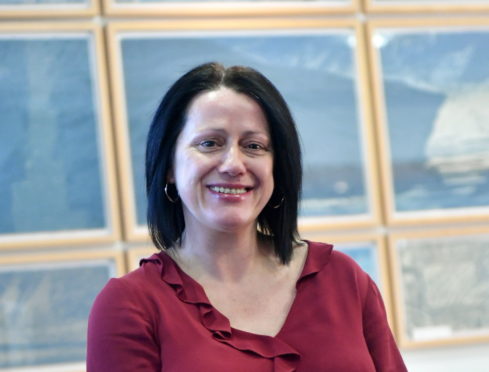Police officers, janitors and school nurses will come together this year to support children struggling mental health.
A multi-agency group is taking a new approach to ensuring colleagues across the public and third sectors get more training in 2020.
Aberdeenshire’s GIRFEC Mental Health Group – which brings together police, health, social work, education and third sector staff – has developed a three-tier programme to ensure the right training and support is in place.
Staff across various jobs will be equipped with a series of modules on topics like bereavement, self-harm, anxiety and low mood and have access to mental health first aid training.
Aberdeenshire Council’s principal educational psychologist Carron Douglas explained that, if done correctly, the work could create lasting change for the children of the north-east.
She said: “This is all based on the premise that mental health is everybody’s job.
“We are keen to move away from idea that mental health sits only in the sphere of specialist services. Important as they are – everyone has mental health and it can fluctuate over time.
“And that can be anything from optimal well being to having blue days to having a diagnose mental disorder.
“All of us don’t sit on optimal well-being all the time – so it is everyone in society’s job to support children with their well being.
“A lot of the training improves awareness – sometimes it is the quiet wee girl in the back saying nothing who is struggling the most, it is being a aware and doing as much as possible in that remit to help.”
The “everyone at the table” approach brings various staff together and recognise the symptoms of poor mental health in children.
Ms Douglas, who quit her job in oil and gas to follow a career in psychology, explained the importance of early intervention.
She added: “If a child receives inconsistent parenting it can have lasting effects.
“An adult can be there for you when you cry one second, but the next second they are be and you’re left alone .
“At this point, no matter the age, neural pathways develop and tell you that you can’t trust relationships because you haven’t had consistency.
“However, new neural pathways can be farmed at a later point – a lot of the work we do in schools is about supporting the development of children in this sense.
“If we can help children express their emotions and promote resilience it can’t prevent difficult times, but it can make it easier for them to cope.”
Relationship support charity The Spark represents the third sector on the group.
North region lead Emma Cameron added: “We want to ensure everyone working and volunteering with children and young people know this training exists so that they can become more confident in this area.
“Using a multi-agency approach has ensured the development of the right training at each level.”
The modules
Category 1 level – for people who come into contact on a fairly regular basis with young people as part of their every day job, their actual job isn’t necessarily to work with children. Example –a janitor, in and around young people but not their job.
Online training module, piloting in December and to launch in January, optional.
Category 2 level – For people who work on an everyday basis with children and young people and are likely to have quite personal relationships with them. Example: Class teachers for example, mental health first aid courses
Variety of online training modules, specialising in things like self harm, bereavement and anxiety
Category 3 – as part of everyday job are responsible for one-to-one or group work interventions that support young peoples social and emotional well being eg: student nurse, social worker, psychologist
Not specifying they have to do a particular course, but developing a range of project pathways
